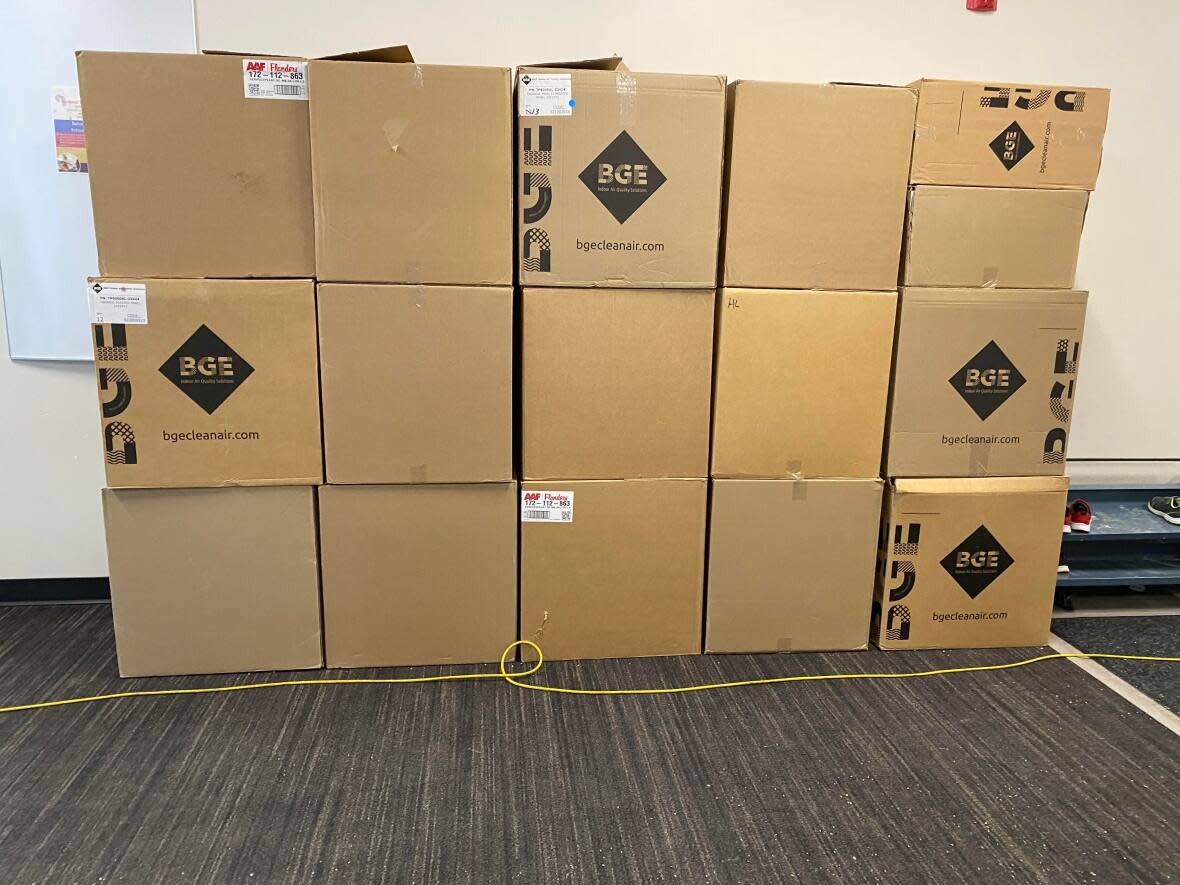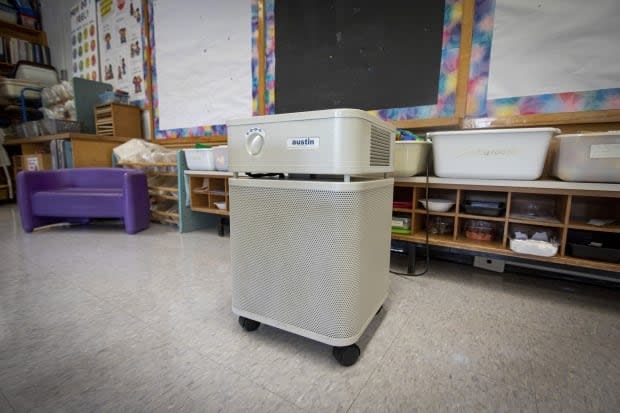Upgraded ventilation systems in schools important, but not single solution, say experts

While Omicron is blasting through Saskatchewan, air ventilation and purification are among the available tools for reducing the spread of the novel coronavirus, but experts caution they are not a silver bullet.
Some school divisions in the province have been upgrading their ventilation systems since the start of the pandemic, but the question remains of how effective updated ventilation systems are in schools, considering the newer and much more contagious Omicron variant.
"My short answer is that the improvements will work with Omicron," said Carey Simonson, professor of mechanical engineering at the University of Saskatchewan in an email to CBC.
"It is important to note that good filtration and ventilation do not guarantee that COVID-19 will not spread; they only reduce the risk of becoming infected. The better the filtration and the higher the ventilation rate, the lower the risk."
While updates to ventilation systems prior to the Omicron wave are not necessarily useless today, there is not enough evidence yet to be able to design systems for a certain risk level at the moment, according to Simonson.
"Better filtration and more ventilation would be needed to keep the same risk level with a more contagious variant."
Even in newer schools, ventilation systems are originally not designed for infectious disease control, said the engineering professor in an interview with CBC.
New systems in Regina Public Schools
Dr. Nazeem Muhajarine also thinks updating and refitting aging HVAC systems in schools is a good move, even though the professor of community health and epidemiology from the University of Saskatchewan is not sure how effective they will be against Omicron.
"I would rather have HEPA filters fitted, upgraded HVAC [heating, ventilation and air conditioning] system in a school than not," he said.
It makes sense "to keep our air clean."
In January 2021, Regina Public Schools announced the completed installation of new air filtration systems in all its facilities.
"The school division has increased airflow and replaced or updated all ventilation systems in all its schools and buildings," said Regina Public Schools on its website.
The multi-phase project began in September 2020 and cost $1.39 million, with Regina Public Schools receiving financial support from the federal and provincial governments' pandemic funding, the school division said in an email to CBC.
Greater Saskatoon Catholic Schools spent $1.2 million on ventilation upgrades, according to this school division.
"The bulk of that was to replace an entire HVAC system at one school and 39 rooftop units across the division," said Derrick Kunz, communications consultant with Greater Saskatoon Catholic Schools in an email.
"Throughout the pandemic, our maintenance staff have spent a significant amount of time maintaining existing ventilation systems and cleaning/replacing filters to maximize air flow and filtration."
In addition, GSCS said they have 50 freestanding HEPA filters for its schools to use in areas that have lower airflow through central air exchange units.
Already in 2020, Simonson recommended HVAC systems as a tool to minimize the exposure to airborne particles which could contain viruses.
"Fresh air, ventilation to reduce concentrations and then filtration to remove particles … those are two important pieces to the puzzle," said the engineering professor in a recent interview with CBC.
"Filtration and ventilation can certainly reduce the risk, if done correctly."
Portable air cleaner with HEPA filters
Administrators of and mechanical staff at existing school buildings should put in the best filters they can, make sure they are installed properly, and, if there is not enough air exchange, maybe add portable HEPA filter units, said Simonson.
However, the effectiveness of portable air cleaners with HEPA filters, as used in Ontario schools, has also been debated by experts and the Public Health Agency of Canada (PHAC).

In an online COVID-19 guide about indoor ventilation from 2021, the PHAC acknowledged that these devices might be considered as an additional protection, especially where enhancing ventilation is not possible otherwise.
"When properly used, portable air filtration devices with high-efficiency particulate air (HEPA) filters have been shown to reduce the concentration of some viruses from the air," said the PHAC.
"It's important to note that the effectiveness of portable air filtration devices in reducing the transmission of the SARS-CoV-2 virus hasn't yet been demonstrated. As such, they should not be used alone or as replacement for adequate ventilation, physical distancing and hygienic measures."
The proper placement of the portable air cleaner in the room will also play a role regarding its effectiveness, according to Muhajarine.
Overall, ventilation and filtration are important, said Simonson. However, people cannot rely on them entirely as a sole protection from the spread of the virus. Ventilation and filtration are "one piece of the whole strategy," he said.
"A lot of [school] divisions we talked to [in 2021] had upgraded their systems to the industry and more standard," said Muhajarine.
"We are still seeing outbreaks. Some of these outbreaks are in the classroom."

 Yahoo Movies
Yahoo Movies 
